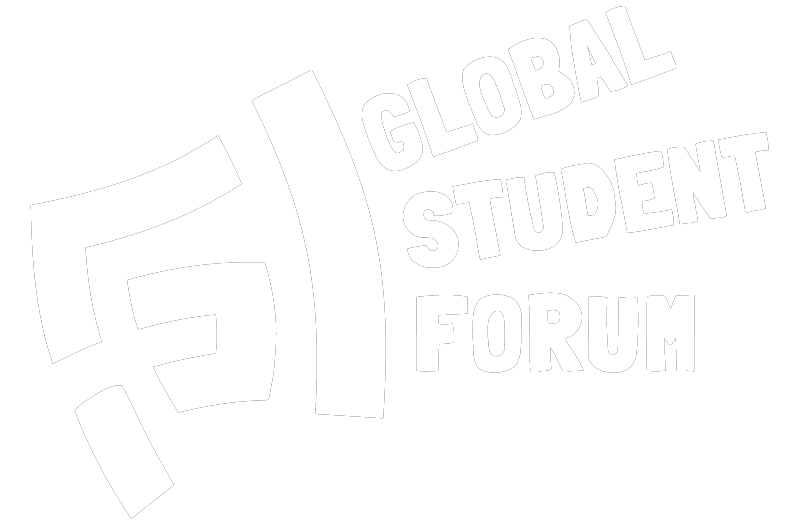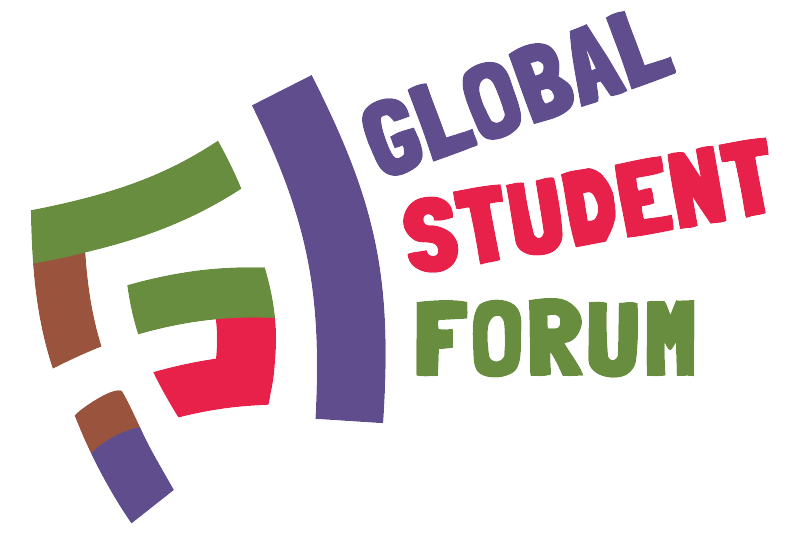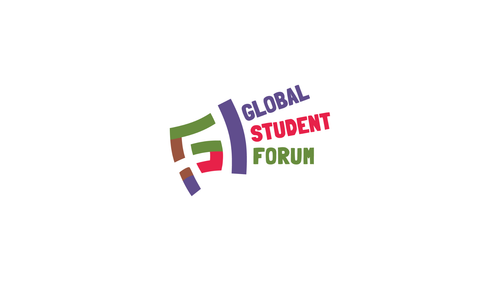Education for All
We will defend and advance the right to free, quality, inclusive, and public education at all levels, recognising education as a precondition for human rights, sustainable development, and social justice. We demand equitable access, resilient systems, and sustainable financing frameworks that recognise education as a global public good, grounded in solidarity, equity, and collective responsibility. GSF calls for a reformed international financial architecture that prioritises education through fair taxation, transparent governance, and responsible partnerships that prevent the commercialization of learning.
We support the Global Partnership for Education (GPE) and Education Cannot Wait (ECW) in mobilising resources for low-income, displaced, and crisis-affected communities, while ensuring the meaningful participation of students in decision-making, implementation, and accountability processes. Our vision embraces education systems that are safe, inclusive, gender-transformative, environmentally conscious, and capable of withstanding global disruptions.
In an increasingly digitalised world, GSF underscores digital literacy as a necessity for democratic participation, employability, and active citizenship. We advocate universal and affordable access to the digital world through public investment in connectivity, devices, open educational resources, and teacher training. GSF further calls for the responsible and rights-based governance of AI in education, with a regulated and transparent base, to safeguard privacy, equity, and academic freedom, ensuring that technology amplifies human potential rather than exacerbating inequality.
Believing that tax justice and progressive redistribution are vital to sustainable education financing, GSF promotes international cooperation to eliminate tax evasion and the debt traps that limit states' fiscal capacity to invest in education and innovation. Education for All demands coherent, coordinated action by governments, international organisations, civil society, and the private sector, aligned with mechanisms of accountability and participatory governance.
GSF continues to advocate for removing financial barriers, expanding scholarship opportunities, and securing targeted support for learners with disabilities, displaced populations, and those facing systemic discrimination or other barriers. We promote gender equality, environmental sustainability, and lifelong learning as integral components of transformative education.
Placing students at the centre of governance, GSF champions democratic participation, representation, and accountability at all levels of education policy. We will continue to challenge the privatisation and commodification of learning, defending education as an emancipatory process that nurtures collective human development for all.
Key objectives:
- Strengthen global advocacy for SDG4 and education as a human right.
- Support student organisations in building inclusive, participatory education systems.
- Promote access to higher education for refugees, displaced, and marginalised students.
- Increase student participation in quality assurance at all levels to promote transparent, democratic, and learner-centred education systems.
- Advance lifelong learning and equitable access to vocational and technical education pathways.
- Ensure universal and affordable access to digital tools and resources for all learners.
- Promote ethical and responsible digital literacy for equitable participation in the digital world.
- Promote ethical and transparent use of AI in education through clear governance and accountability.
- Equip learners with critical media skills to analyse, question, and ethically engage with information.
Democracy, Peace, and Human Rights
In a time of renewed geopolitical tensions, GSF will champion education as a driver of peace, dialogue, and mutual understanding among peoples. We recognise that students around the world experience conflict and security differently. While we reject the instrumentalisation of education for militaristic or propagandistic purposes, we affirm that education must contribute to peacebuilding, civic engagement, and the peaceful resolution of disputes. GSF will stand with students affected by conflict and occupation, defend democratic values, and advocate for self-determination and human rights through international solidarity and cooperation.
GSF will defend academic freedom and institutional autonomy as essential conditions for peace, democracy, and social progress. Students, scholars, and institutions must be free to exchange ideas, pursue truth, and challenge power without fear of censorship or persecution.
Key objectives:
- Promote education as a cornerstone of democracy, global citizenship, and intercultural understanding.
- Support students in conflict-affected and occupied territories through solidarity and advocacy.
- Defend democratic freedoms, civic space, and the autonomy of student and academic movements.
- Advocate for active participation and meaningful student engagement in governance and public life.
- Foster dialogue among students across divides to prevent violence and build mutual trust.
- Promote democratic literacy across curricula and learning environments at all levels.
- Encourage human rights education.
Climate, Social, and Territoral Justice
The struggle for climate justice is inseparable from the fight for social, economic, and territorial justice.
GSF recognises that environmental degradation and climate change disproportionately impact marginalised communities, exacerbating existing inequalities related to land, resources, and governance. GSF commits to advancing climate justice grounded in these interrelated struggles by strengthening student-led climate action and solidarity across borders, linking education, sustainability, and intergenerational equity.
We will campaign vigorously for stronger environmental protection laws that empower youth as custodians of the planet and ensure meaningful enforcement of existing regulations with a clear focus on their impacts on young people and vulnerable communities. Central to this is our commitment to climate education: advocating for the integration of climate change into curricula, supporting teacher development, and fostering student-led initiatives and community engagement. To ensure accessibility and participation, we will develop digital resources and promote policies that embed climate education in national and international standards.
Recognising the complexity of the crisis, GSF adopts an intersectional climate justice framework that addresses how climate impacts intersect with gender, race, class, indigeneity, disability, and migration status, prioritising the leadership and needs of historically marginalised communities. We strive to promote sustainability and decarbonisation comprehensively while actively supporting student co-governance roles in institutional climate action planning. Finally, we emphasise mental health and well-being as shared responsibilities essential to building resilient and inclusive educational environments amidst ecological challenges.
Key objectives:
- Empower student movements to lead global advocacy for climate justice and systemic transformation.
- Build alliances with labour, indigenous, and environmental movements.
- Integrate sustainability in higher education and student activism.
- Ensure meaningful youth participation in all levels of climate policy and negotiation, positioning student voices at the centre of decision-making and implementation.
- Promote sustainability and decarbonisation across campus operations, governance, and procurement, reinforcing student co-leadership in institutional climate action.Adopt an intersectional climate justice framework that addresses the links between climate impacts and social inequalities, advancing the leadership of historically marginalised communities.
- Promote mental health and well-being as collective responsibilities in education.
Strengthening the
Global Student Forum
GSF’s ability to deliver politically depends on organisational strength and sustainability. We will invest in governance, financial sustainability, and capacity building to ensure GSF can continue to represent the diversity of the global student movement effectively and democratically.
Key objectives:
- Diversify and stabilise GSF’s funding through partnerships and re-granting mechanisms.
- Strengthen internal governance, transparency, and accountability.
- Build member engagement through learning platforms, networks, and solidarity actions.
- Work to guarantee regional balance and equitable participation in decision-making structures.
- Built strong media platforms and storytelling initiatives that shape public debate, highlight student perspectives, and bring their struggles and ideas to international attention.
- Highlight the power and impact of the broader membership of the organization.
International Engagement
GSF is dedicated to amplifying student participation across the full spectrum of international institutions and forums, including the United Nations system, the International financial institutions, and other key multilateral spaces. Recognising the indispensable role of students in shaping global agendas, GSF actively engages in these arenas to ensure that student perspectives are meaningfully integrated into policy discussions and decision-making processes. As the SDGs approach their critical final phase, GSF advocates for the prioritisation of student voices on fundamental issues such as quality education, decent work, climate action, human rights, and reducing inequalities.
Beyond the UN framework, GSF collaborates with a diverse array of international organizations and governance structures to strengthen youth and student presence and impact in global decision-making. By fostering alliances, capacity-building, and genuine youth leadership, GSF strives to contribute to a more inclusive, transparent, and effective international system, one that recognises and supports the vital contributions of students to sustainable development and global peace.
Key objectives:
- Enhance and diversify student engagement across all relevant international platforms, ensuring their views influence sustainable development and peace initiatives.
- Advocate for the meaningful inclusion of student voices in the final implementation phase of the SDGs, focusing on education, decent work, climate justice, human rights, and equity.
- Strengthen coordination within the Major Groups and Other Stakeholders (MGoS) mechanism and the Education and Academia Stakeholder Group (EASG) for robust student representation.
- Build strategic alliances with youth, student, and civil society networks globally to amplify advocacy and collective impact.
- Develop capacity-building initiatives that empower students to participate effectively in international policy processes and diplomacy.
- Promote authentic youth participation that advances students from consultative roles to leadership positions in global governance.



